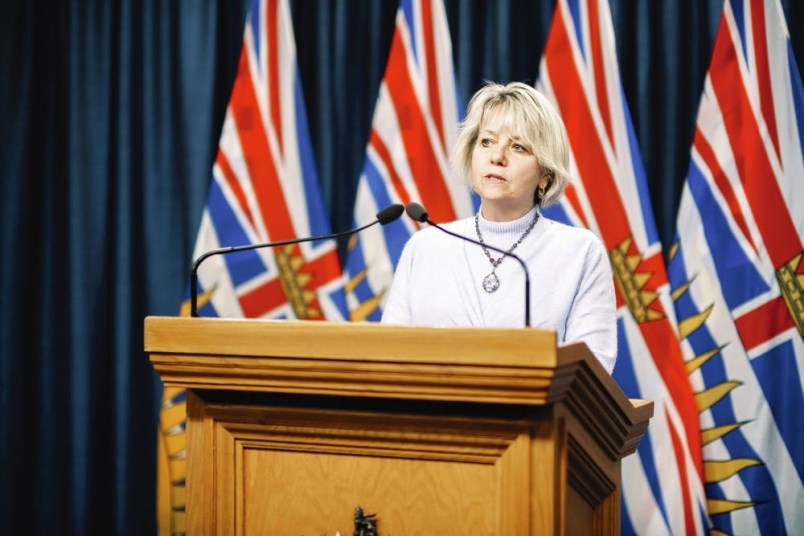You might recall a December column in which I urged weary readers to maintain COVID discipline, keep their Christmas celebrations small and hang on for what I assured them would be the best Family Day ever.
This, of course, was a typographical error.
What I meant to say was “waiting for this pandemic to ease is like waiting for the Canucks to win the Stanley Cup.”
Or, as you used to say to your dad on those interminable nobody’s-stopping-to-pee road trips (remember road trips?) to Broken Dreams, Sask., “Are we there yet?”
No, no we are not. And we’re feeling more than a little like Alice in Wonderland, chasing a goal that never gets closer no matter how fast we run.
Nobody was really surprised Friday when Dr. Bonnie Henry extended — again — the no-gathering rules introduced in mid-November. We need to buy time, she said, to get B.C.’s immunization program back on track and to get a handle on those scary variants that, while rare here, we really don’t want to take root.
Besides, opening the doors to social gatherings in the run-up to Super Bowl Sunday, the Lunar New Year, Valentine’s Day and Family Day would have been like lowering the drinking age the week before spring break. (Speaking of spring break: don’t.)
Still, even though Friday’s extension was expected, it was discouraging.
There’s a stand-up comedian who has a joke about meteorologists who habitually forecast a sunny day at the end of a week of rain, just to keep people’s hopes up. After a few weeks of no sun, hope fades. That’s what if felt like.
Except here’s the deal: the mountain of information released by Henry and Health Minister Adrian Dix actually included plenty of reasons for cautious optimism. Indicators are pointing in the right direction.
Among the positives:
• If we continue to buckle down, we could see the return of our safe-six bubbles, religious services and youth sports by the end of the month. “It’s not going to be ‘yay, we’re out of this, we’re back to normal,’ ” Henry said. It will be a slow re-entry into the world that was.
• After peaking in November, then blipping up after the holidays, the daily case count is going in the right direction. “We have now flattened and slowly started to decrease.”
• The flow of vaccines to B.C. might be disappointing, but the effects of the shots that have been administered are beginning to show. Henry said there has been a “dramatic and sustained” decrease in cases among the elderly and those who are most vulnerable to severe illness.
Dix said the number of outbreaks in long-term care, assisted-living and independent-living homes fell from 49 on Jan. 15 to 24 as of Friday. Not only that, but outbreaks in the past two weeks have been smaller in scope.
• The return to classrooms did not bring the spike in cases that some had feared. “We’re not seeing accelerated transmission in school-age children,” Henry said.
• The all-important R number — the average number of people infected by an infected person — has dropped below one. That’s critical.
• Of the 145,567 British Columbians who have received vaccines, only 205 have reported adverse side effects. That includes 55 who had serious reactions such as anaphylaxis. “That’s not unexpected,” Henry said.
• More vaccines are in the approval process.
“We are seeing some encouraging signs here in B.C,” Henry summarized. The collective efforts are working.
It all came with a note of caution, though.
Henry and Dix repeatedly said how easy it would be to undo all the progress. All it would take for the virus to take off would be one or two superspreader events, or even a slight increase in our contacts. Seeing one more friend, or going to a birthday party is all it might take, Henry said.
And that brings us to the bottom line.
It wasn’t really Dr. Bonnie who was responsible for extending the restrictions Friday. It was COVID.
Nor will it be up to Henry to ease the limits on our lives. It will be up to us. If we keep doing the right things — staying apart, staying put, washing hands, wearing masks — we’ll create our own hope.



